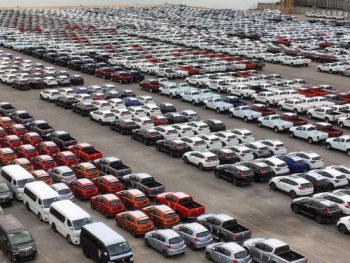Vehicle supply is now a major concern for the rental and leasing industry, despite the sector having a far more positive outlook on the economy and business expectations in general.

That’s according to the BVRLA’s latest Business Impact Survey, carried out in May and revealing 90% of respondents expect the economy to improve in the next six months.
The research among senior member contacts found a total of 70% anticipate improvements for the leasing sector and 75% are expecting to see increased demand across the rental sector in line with the easing of restrictions.
In particular, the industry is planning for growth over the coming months – 71% expect to increase their fleet size during the remainder of 2021, compared to 54% in the association’s February survey.
But the industry remains very concerned about vehicle supply, particularly vans. A total of 59% of respondents said the supply of vehicles, particularly vans, was a primary concern.
And 91% suggested that the current supply of ICE vans was a barrier to meeting the needs of customers, while 40% of this said the barrier was extreme. Underscoring this, 84% think the supply of vans to their organisation is getting worse.
BVRLA chief executive Gerry Keaney said: “The van parc is growing exponentially at a rate double that of cars, yet the supply of battery electric vans is an acute problem. Although we have seen an increase in the number of makes and models coming to market, there is a particular dearth of vans capable of long ranges or towing.
“Vans play a vital role in the UK economy with one in 10 workers relying on a one to do their job. A special focus on vans is needed if this sector is to achieve parity with the more developed electric car market and the BVRLA will be making recommendations to government.”
While the industry is already being hit by vehicle supply problems, research published by the Vehicle Remarketing Association (VRA) last week indicates the issues are likely to worsen – and will certainly last well into the second half of 2021 and possibly into 2022.
Philip Nothard, VRA chair and insight and strategy director at Cox Automotive, warned in the report that manufacturers in the LCV market are “quite literally being forced to choose between van and car production in many cases”.
It’s the latest warning for the sector. Speaking last month, the Association of Fleet Professionals (AFP) advised fleet operators to start planning ahead for potential disruption to new vehicle supplies while FleetCheck reported last month that operators are facing “worst-ever” vehicle delays – and delivery times of up to a year are becoming common.
Elsewhere in the new BVRLA report, the fleet sector warned that challenges around the UK’s exit from the EU are beginning to materialise, with members have growing concerns about new product liability rules and placing vehicles on the market, amongst other issues.
A total of 45% of respondents also said they still have access to finance issues, and electrification and travel restrictions are also posing problems.
Survey participants also said business travel will not return to pre-pandemic levels and that flexible and agile working is to become the new normal. There is general positivity around staffing though and 73% expect staffing levels to grow over the next 12 months.

